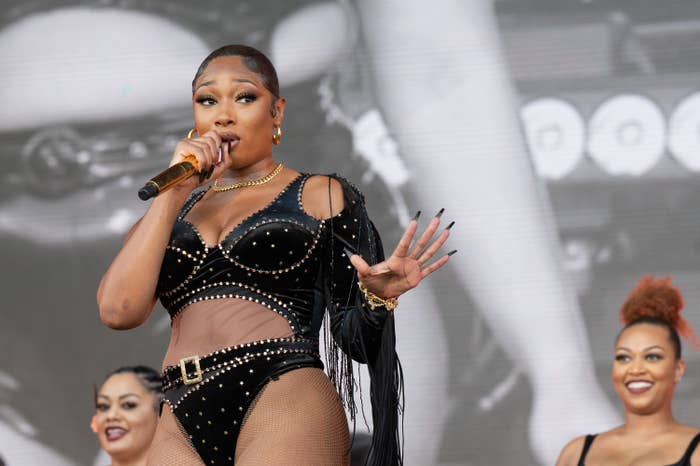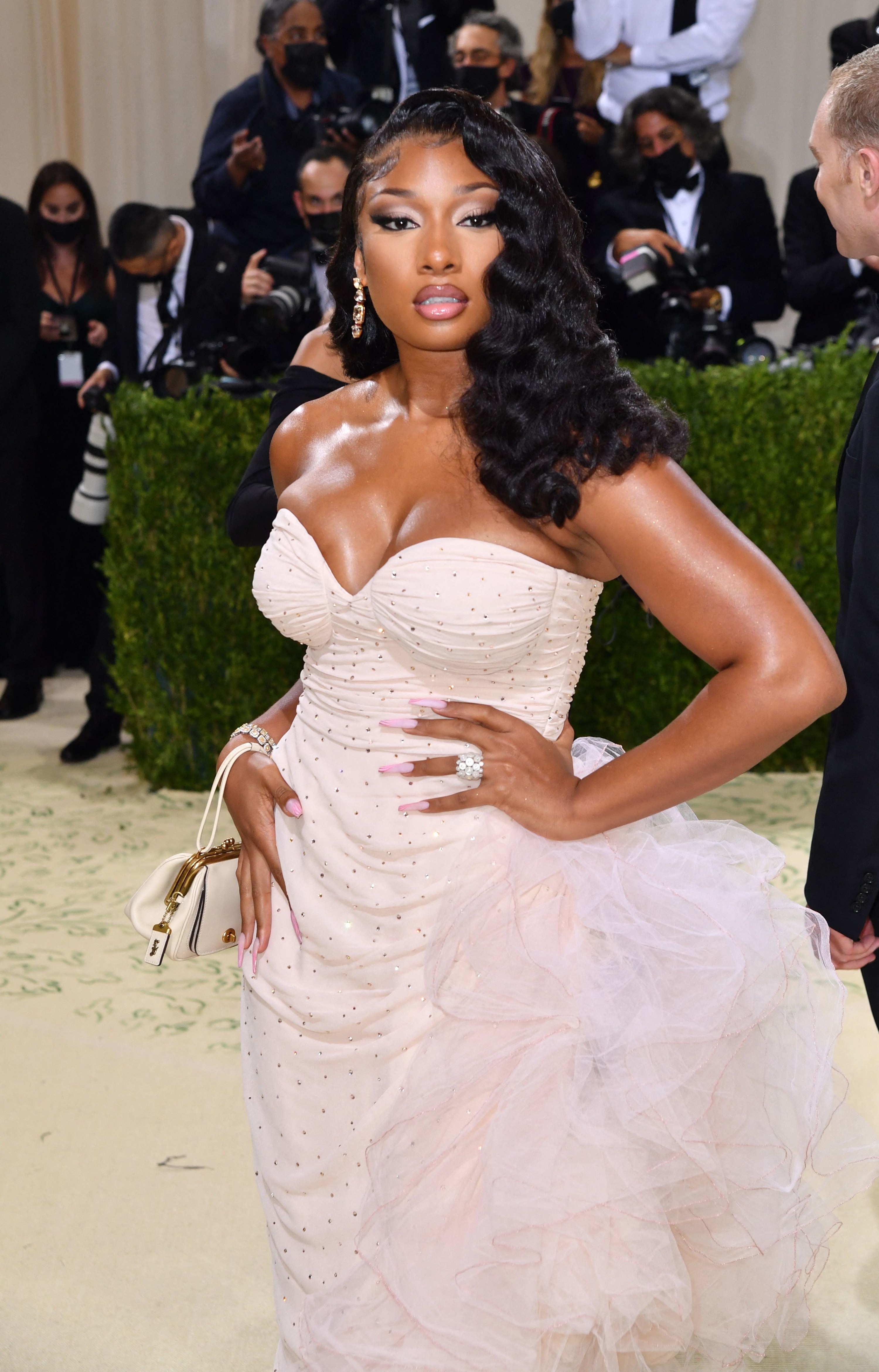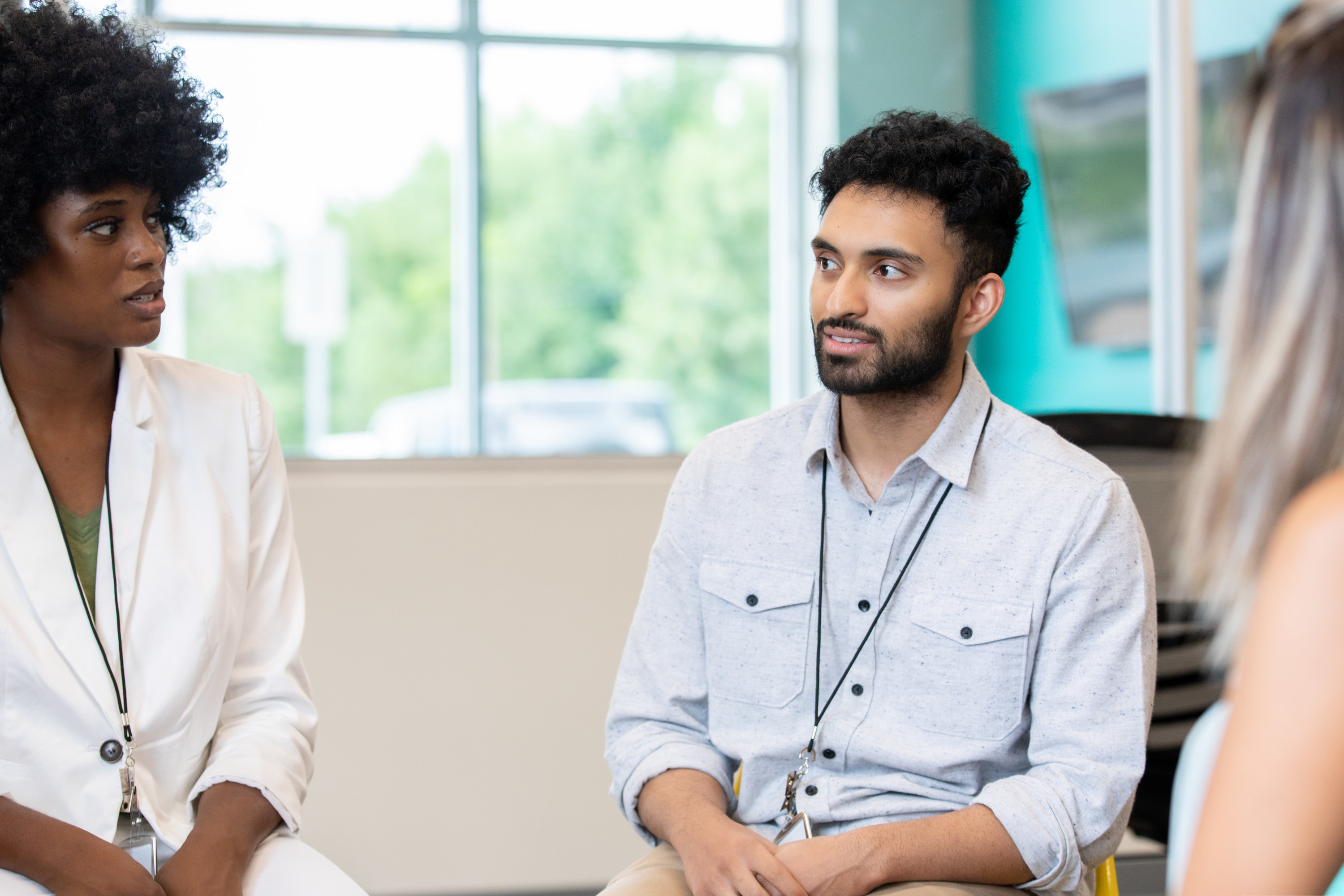Megan Thee Stallion has opened up in a real way about prioritizing mental health, seeking therapy, and the lingering stigmas around therapy in the Black community.

During the season premiere of Taraji P. Henson's Facebook Watch series, Peace of Mind With Taraji, the "Body" rapper talked about the steps she'd taken to prioritize her mental health.
"I feel like right now mental health is more important to me, more than ever, because I have more pressure on me than I feel like I used to have...when I was Megan and I wasn’t as criticized and under such a magnifying glass as I am now," she said.

Megan also noted how losing both parents — her father in the ninth grade and her mother in 2019 — catalyzed the realization. "It was never a conversation that was on the table," she said. "Now in this space, I've lost both of my parents. So now I'm like, ‘Oh, my gosh, who do I talk to? What do I do?’ And I just started learning that it’s OK to ask for help. And it’s OK to want to go get therapy.”

Megan also got super honest about the lingering stigmas surrounding therapy in the Black community. "As a Black person and when you think of therapy, you think, Oh my gosh I’m weak. Like, you think of medication, and you just think the worst."

"'Cause that’s kind of what you see on TV too," she continued. "Therapy wasn't even presented in the media as something that was good. Now it’s becoming safe to say, 'All right now, it’s a little too much going on; somebody help me.'"
Research absolutely supports Megan's discussion. According to Columbia Psychiatry, "Despite progress in recent years, there is still a significant stigma associated with mental health concerns [in the Black community]," where there is a persistent belief that "a mental health condition is a personal weakness due to negative stereotypes of instability and attitudes of rejection."

